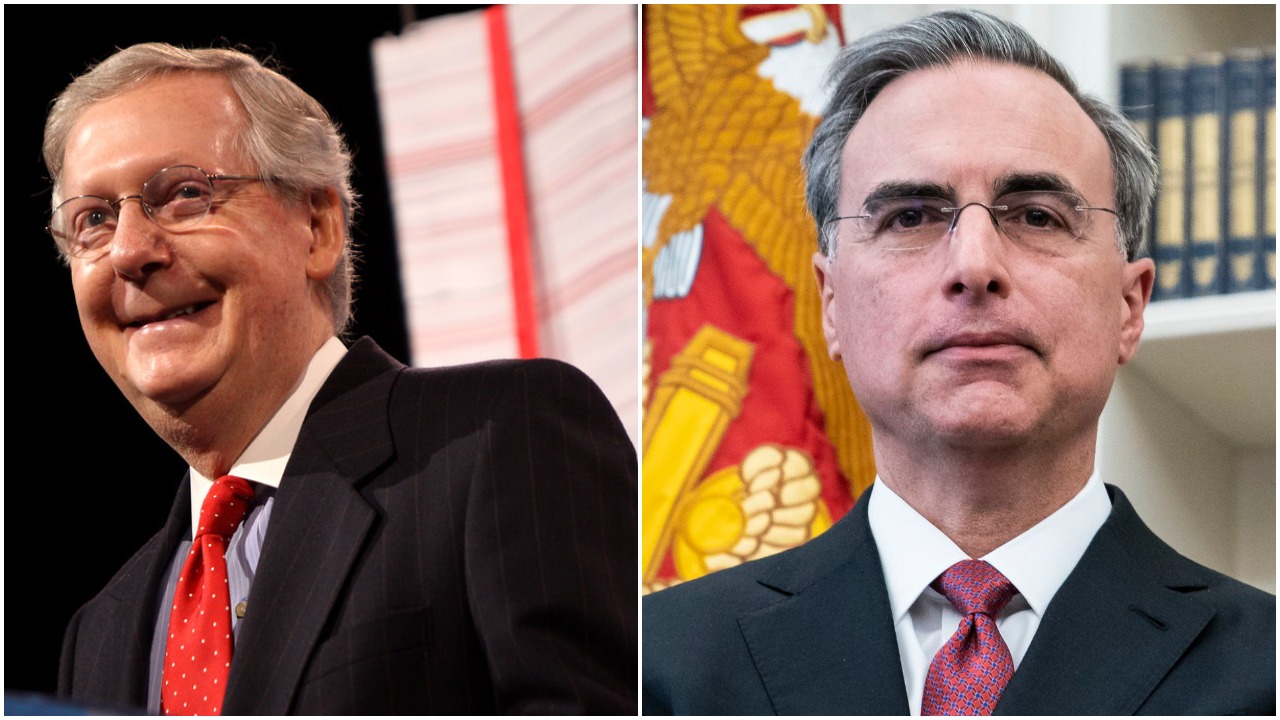White House Counsel Pat Cipollone on Tuesday falsely claimed that the rules for President Trump’s Senate trial proposed by Majority Leader Mitch McConnell are the same rules which governed the 1999 trial of then-President Bill Clinton.
While speaking in opposition to an amendment to the rules offered by Senate Minority Leader Chuck Schumer to compel testimony by White House Acting Chief of Staff Mick Mulvaney, Cipollone claimed that the multitude of amendments to compel documents and testimony offered by Schumer represent a departure from the rules the New York Democrat agreed to as a freshman senator in January 1999, when the Senate unanimously agreed to implement a set of rules for Clinton’s trial which were worked out after discussions by then-Majority Leader Trent Lott, R-Miss. and then-Minority Leader Tom Daschle D-S.D.
Those rules, Cipollone and other White House lawyers argued, provided for senators to vote on whether to hear witness testimony after the House’s managers and Clinton’s attorneys presented opening arguments for and against removing Clinton from office.
But a review of the rules proposed by McConnell and the rules governing Clinton’s trial show that the Kentucky Republican’s proposal does not automatically allow senators to vote on whether to compel documents or testimony from individual witnesses.
The Clinton-era rules provided that “it shall be in order to make a motion to subpoena witnesses and/or to present any evidence not in the record” after the Senate had heard opening arguments and considered and debated any motion to dismiss, with “an immediate vote on the motion to subpoena witnesses and/or to present any evidence not in the record, all without intervening action, motion, amendment or debate” immediately following a vote on the motion to dismiss, assuming such a motion was defeated.
But the rules offered by McConnell provide Republicans with a chance to dismiss the articles of impeachment before considering any witness testimony, as well as an opportunity to cut off any possibility that Democrats would be permitted to make a motion to subpoena witnesses.
While the rules governing Clinton’s trial required opening arguments to be complete before entertaining or debating any motion to dismiss, the GOP-authored rules for Trump’s trial allow senators to make any motion — including a motion to dismiss — before opening arguments are heard.
And though the 1999 rules explicitly stated that it would be “in order” for senators to offer motions to compel documents or testimony, McConnell’s proposal would require senators to first vote for any motion for witnesses to be “in order” following four hours of debate after the conclusion of opening arguments.
If a majority of the Senate — 51 senators — failed to vote in favor of making motions to subpoena witnesses “in order,” it would preclude the possibility of any further votes on whether to call individual witnesses.

